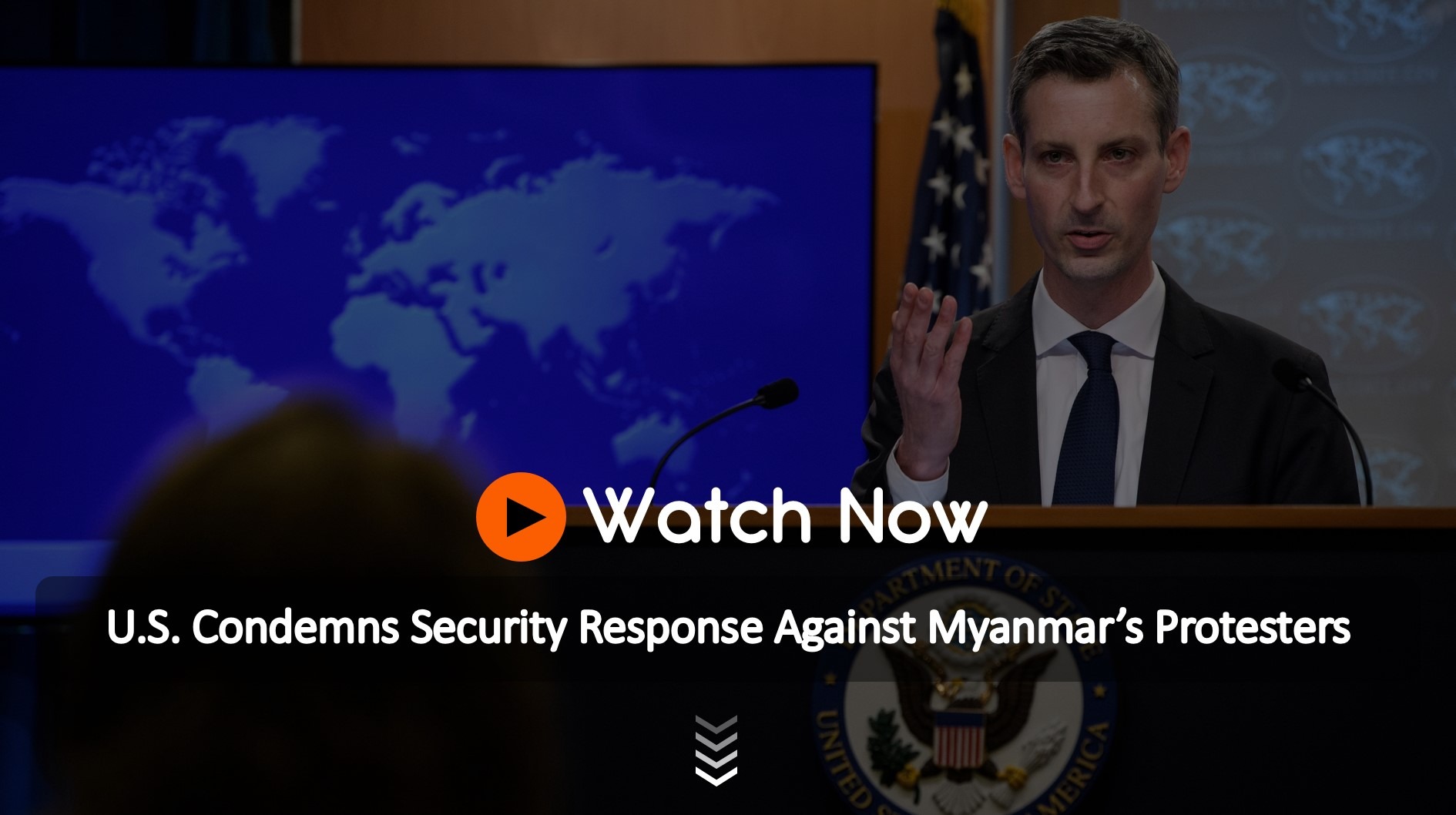
U.S. Condemns Security Response Against Myanmar’s Protesters
The United States and United Nations condemned Tuesday’s use of force against the protesters who are demanding the reversal of the Feb. 1 coup and the release of deposed leader Aung San Suu Kyi, and other leaders of her National League for Democracy
“We cannot stay quiet,” youth leader Esther Ze Naw said. “If there is blood shed during our peaceful protests, then there will be more if we let them take over the country.”
Thousands of people joined demonstrations in the main city of Yangon. In the capital, Naypyidaw, hundreds of government workers marched in support of a growing civil disobedience campaign.
A group of police in Kayah state in the east joined the protesters and marched in uniform with a sign that said “We don’t want dictatorship”, according to pictures published in the media.
There were no reports of violence on Wednesday but soldiers took over a clinic that had been treating wounded protesters in Naypyitaw on Tuesday, a doctor there said.
Another doctor said a woman protester was expected to die from a gunshot wound to the head sustained during a Tuesday confrontation with police in Naypyitaw. She was wounded when police fired, mostly into the air, to clear the protesters. Three other people were being treated for wounds from suspected rubber bullets, doctors said.
Protesters were also hurt in Mandalay and other cities, where security forces used water cannon and arrested dozens. Four policemen were injured on Tuesday as they tried to disperse protesters, some of whom threw stones and bricks, the military said.
The military has imposed restrictions on gatherings and a night curfew in the biggest cities.
The protests are the largest in Myanmar in more than a decade, reviving memories of almost half a century of direct army rule and spasms of bloody uprisings until the military began relinquishing some power in 2011.
The military justified its takeover on the grounds of fraud in a Nov. 8 election that Suu Kyi’s NLD party won by a landslide, as expected. The electoral commission dismissed the army’s complaints.
Western countries have condemned the coup but taken little concrete action to press for the restoration of democracy.
The U.S. State Department said it was reviewing assistance to Myanmar to ensure those responsible for the coup faced “significant consequences”.
“We repeat our calls for the military to relinquish power, restore democratically elected government, release those detained and lift all telecommunication restrictions and to refrain from violence,” spokesman Ned Price said in Washington.
The United Nations called on Myanmar’s security forces to respect people’s right to protest peacefully.
“The use of disproportionate force against demonstrators is unacceptable,” Ola Almgren, the U.N. representative in Myanmar, said.
Avinash Paliwal, a senior lecturer in international relations at London University’s School of Oriental and African Studies, said Myanmar will not be as isolated now as it was in the past, with China, India, Southeast Asian neighbours and Japan unlikely to cut ties.
“The country is too important geo-strategically for that to happen. The U.S. and other Western countries will put sanctions – but this coup and its ramifications will be an Asian story, not a Western one,” Paliwal said.

